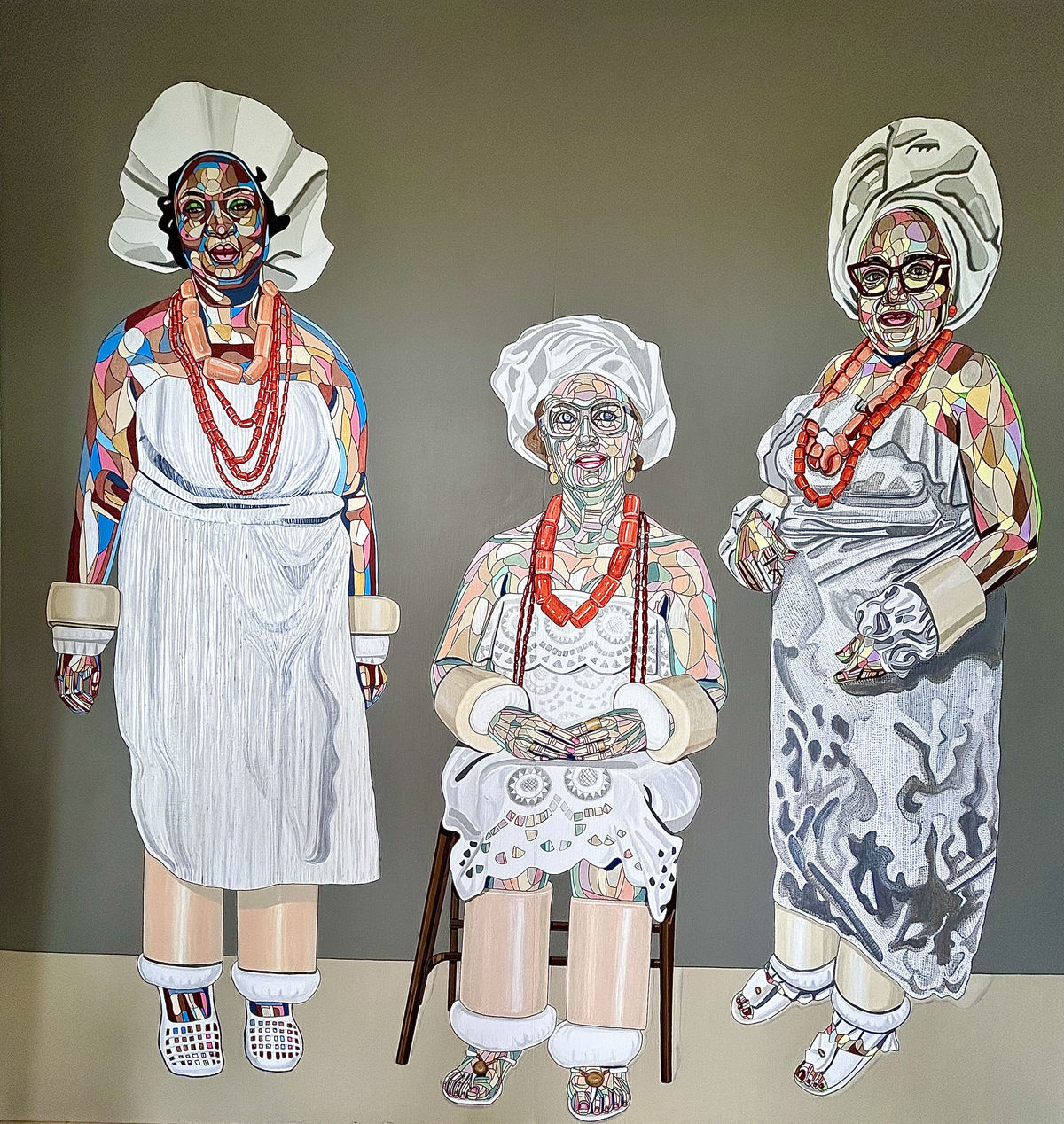Women of The Elephant Tusk: Ndi Otu Odu
Women of The Elephant Tusk
8 - 29 Sep 2024
Welcome to "Women of the Elephant Tusk: ndi otu odu," an exhibition dedicated to the women of Otu Odu Society of Onicha, a vibrant commercial city along the Niger River in South-eastern Nigeria, renowned for its rich cultural heritage and bustling markets.
The Otu Odu Society, also known as the Ivory Society, has a rich history dating back to the formation of Onitsha in the 16th century. Historical texts from the 18th century document the significant roles these women have played in preserving the cultural heritage of the Igbo people. In those times, Igbu Odu, or wearing ivory by women, was traditionally an individual affair until it evolved into a societal practice in recent times.
In the Onicha monarchical system, while no woman has ever been known to rule or sit in the council of the king, women held the complementary position of Omu - the wife of a king. The last known incumbent, Omu Nwagboka, was enthroned in 1884 and held the position until her death in 1880. Omu Nwagboka, herself an ivory wearer, chose her councillors, known as Otu Ogene, from women who had taken ivory. After the death of Omu Nwagboka, the Otu Odu only then became a formally recognized institution in 1959. There has been no Omu since.
A distinctive feature of the Otu Odu women is their ceremonial attire, which includes a white wrapper, head-tie, coral beads and of course, the Odu Aka (bracelets) and Odu Ukwu (anklets). The choice of white symbolizes purity, unity, and the society's commitment to maintaining their cultural legacy.
This exhibition celebrates the resilience, strength, and leadership of the women of the Otu Odu Society. The artworks on display intertwine familial legacy with cultural exploration, offering a heartfelt tribute to these powerful figures. Archival materials and personal stories further highlight the
society's impact and the important role these women play in preserving and promoting Igbo traditions.
You are now invited to immerse yourself in this journey into the heart of Igbo culture and tradition, and to appreciate the enduring legacy of the women of the Otu Odu Society of Onicha Ado N’Idu.
Read more

